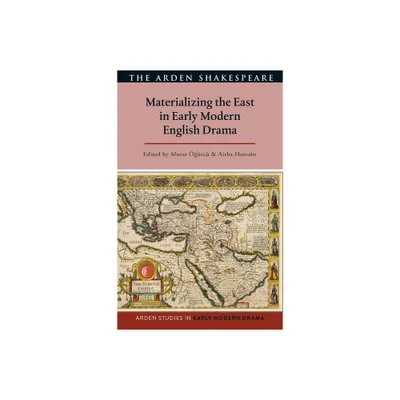Home
Thicker Than Water: Blood, Affinity, and Hegemony Early Modern Drama
Loading Inventory...
Barnes and Noble
Thicker Than Water: Blood, Affinity, and Hegemony Early Modern Drama
Current price: $34.95


Barnes and Noble
Thicker Than Water: Blood, Affinity, and Hegemony Early Modern Drama
Current price: $34.95
Loading Inventory...
Size: Paperback
*Product Information may vary - to confirm product availability, pricing, and additional information please contact Barnes and Noble
Examines the discourses around the role of bloodlines and kinship in the social hierarchies of early modern Europe
“Blood is thicker than water,” goes the old proverb. But do common bloodlines in fact demand special duties or prescribe affections?
Thicker than Water
examines the roots of this belief by studying the omnipresent discourse of bloodlines and kindred relations in the literature of early modern Europe. Early modern discourses concerning kinship promoted the idea that similar bloodlines dictated greater love or affinity, stabilizing the boundaries of families and social classes, as well as the categories of ethnicity and race. Literary representations of romantic relationships were instrumental in such conceptions, and Lauren Weindling examines how drama from England, France, and Italy tests these assumptions about blood and love, exposing their underlying political function. Among the key texts that Weindling studies are Shakespeare’s
Romeo and Juliet
¸
Othello
, and
The Merchant of Venice
, Pierre Corneille’s
Le Cid
, Giambattista della Porta’s
La Sorella
and its English analog, Thomas Middleton’s
No Wit/Help Like a Woman’s
, John Ford’s
’Tis Pity She’s a Whore
, and Machiavelli’s
La Mandragola
. Each of these plays offers an extreme limit case for early modern notions of belonging and exclusion, through plots of love, courtship, and marriage, including blood feuds and incest. Moreover, they feature the voices of marginalized groups, unprivileged by these metrics and ideologies, and thus offer significant counterpoints to this bloody worldview. While most critical studies of blood onstage pertain to matters of guilt or violence,
Thicker Than Water
examines the work that blood does unseen in arbitrating social and emotional connections between persons, and thus underwriting our deepest forms of social organization.
“Blood is thicker than water,” goes the old proverb. But do common bloodlines in fact demand special duties or prescribe affections?
Thicker than Water
examines the roots of this belief by studying the omnipresent discourse of bloodlines and kindred relations in the literature of early modern Europe. Early modern discourses concerning kinship promoted the idea that similar bloodlines dictated greater love or affinity, stabilizing the boundaries of families and social classes, as well as the categories of ethnicity and race. Literary representations of romantic relationships were instrumental in such conceptions, and Lauren Weindling examines how drama from England, France, and Italy tests these assumptions about blood and love, exposing their underlying political function. Among the key texts that Weindling studies are Shakespeare’s
Romeo and Juliet
¸
Othello
, and
The Merchant of Venice
, Pierre Corneille’s
Le Cid
, Giambattista della Porta’s
La Sorella
and its English analog, Thomas Middleton’s
No Wit/Help Like a Woman’s
, John Ford’s
’Tis Pity She’s a Whore
, and Machiavelli’s
La Mandragola
. Each of these plays offers an extreme limit case for early modern notions of belonging and exclusion, through plots of love, courtship, and marriage, including blood feuds and incest. Moreover, they feature the voices of marginalized groups, unprivileged by these metrics and ideologies, and thus offer significant counterpoints to this bloody worldview. While most critical studies of blood onstage pertain to matters of guilt or violence,
Thicker Than Water
examines the work that blood does unseen in arbitrating social and emotional connections between persons, and thus underwriting our deepest forms of social organization.


















